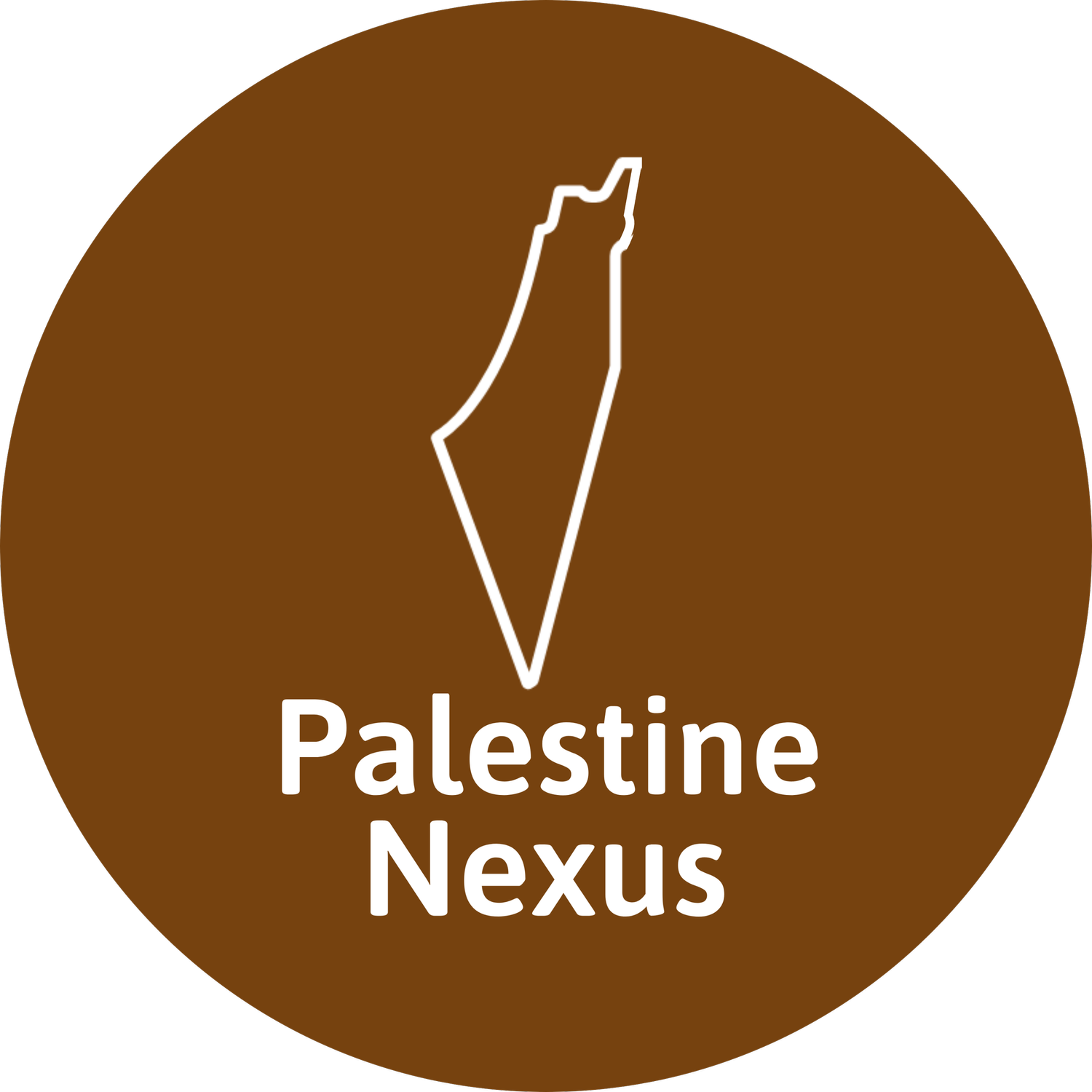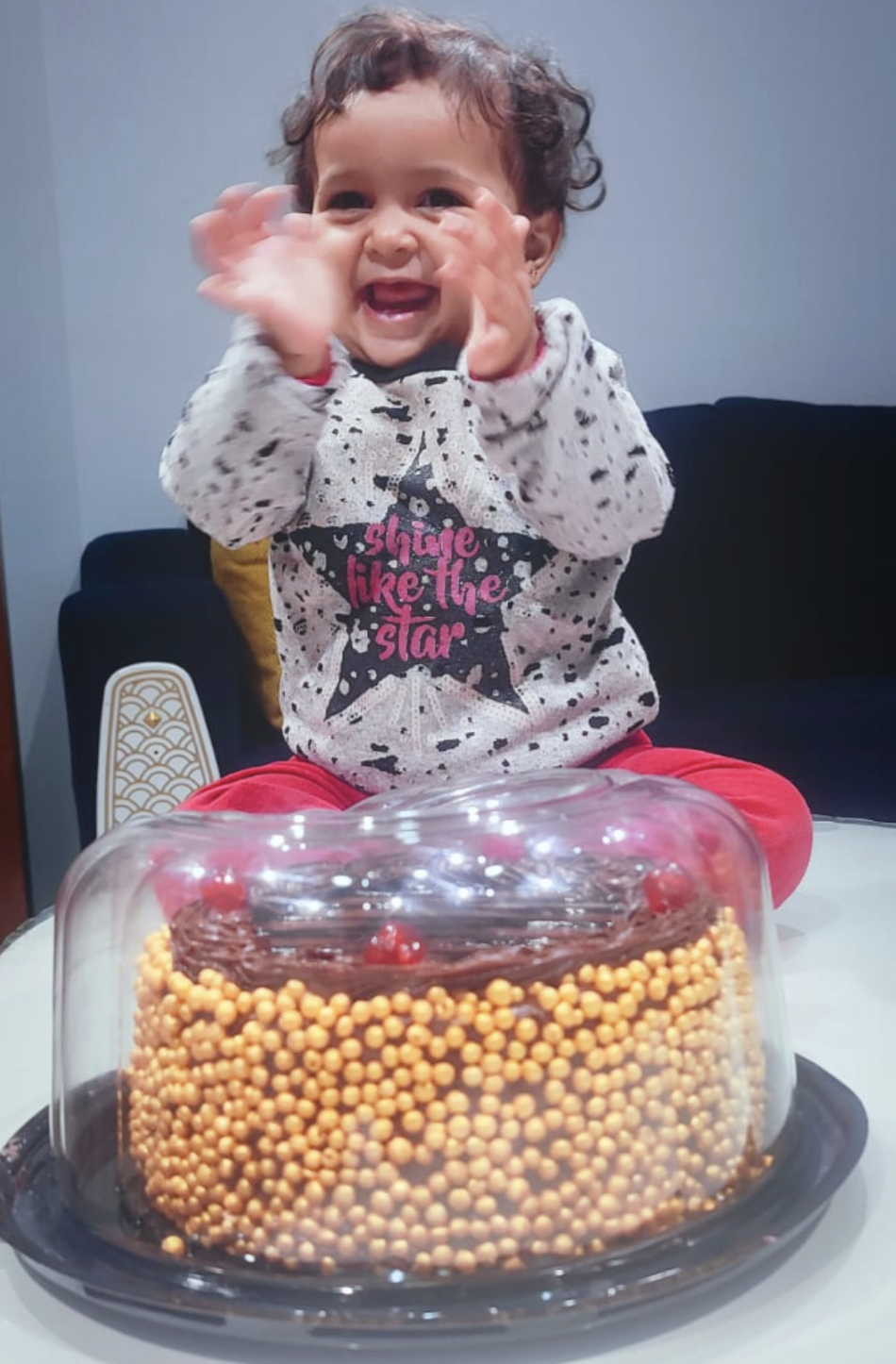Jouan’s fifth birthday under genocide
5 year-old Jouan on her birthday in August. Photo courtesy of the author.
November 14, 2025 — On the night of August 24, in our tent in north Gaza, I lit a single candle. Its tiny flame trembled against the darkness, fragile yet defiant. The candle rested on what I called a cake—a small circle of flour, sugar, and oil, baked over a fire of wood. Around it, my family huddled together, whispering the birthday song, even though the distant thunder of shells threatened to drown it out.
It was my daughter Jouan’s fifth birthday. Five years old, almost two of them spent under the shadow of war.
I wanted her to feel like a child, even for one night. To laugh. To blow out a candle. To know that she is loved despite the destruction around her.
In Gaza, birthdays are not guaranteed. Every year a child survives is a victory. Many families have replaced birthday parties with funerals.
A neighbor, Amal, joined us for the celebration. She lost her niece recently. Watching Jouan blow out her candle, she cried. “This candle is more than light,” she said. “It is proof that life continues.”
When the war began, Jouan was only two and a half. She was learning new words, and filled our home with chatter. She would tug at my sleeve, point at everything around her, the window, the cat, my scarf and ask, “Mama, what’s this?”
Jouan on her first birthday celebration before the genocide. Photo courtesy of the author.
Every word became her new treasure. When she mispronounced them, she would burst into laughter, clapping her little hands while I laughed with her. Jouan laughed loudly, danced to the sound of her own giggles, and ran barefoot through our small yard chasing butterflies. She was fearless; she would fall and cry, but always get up smiling.
After the genocide began, Jouan’s laughter faded. She started flinching at sudden noises, clutching my dress whenever planes passed overhead. The sparkle in her eyes turned watchful, cautious.
At five, children usually begin preschool, sing songs, learn colors, and make friends. But Jouan’s lessons are different. She was learning how to respond to airstrikes.
She knows the hum of drones more than the tune of a lullaby. She has learned to run when the ground shakes. She knows the discomfort of sleeping in a tent after being displaced.
“She used to cry every time she heard a loud bang,” my husband, Maher Daher, recalled. “Now she clings to her mother and stays silent.”
That silence is heavier than any scream. It tells a story no child should carry.
I once dreamed of holding her hand as we walked to kindergarten, carrying a backpack full of crayons and notebooks. Jouan loved coloring, drawing our family: me, her father, and her younger sister Silla, always smiling under a bright sun. She used to tell me she wanted to learn letters “to write my name and Mama’s name.” She never got that chance.
Now I hold her hand to run for cover. I teach her how to stay quiet when planes roar overhead. And every night, I whisper to her, “We are safe with each other,” even when I am terrified.
A Cake From Almost Nothing
Food was scarce. Simple things like milk, eggs, chocolate felt like treasures from another world. But I could not let her birthday pass unnoticed.
From flour saved from humanitarian aid, a spoon of sugar, and a few drops of oil, I baked what I could. My hands, scarred from months of cooking over wood fires, worked carefully.
“There were no eggs, no milk, no chocolate,” I remember saying to her. “But I mixed what I had. It didn’t matter how it looked. What mattered was that you could smile.”
When she saw the candle flicker, her eyes widened. She clapped and giggled. She sang along as we hummed the birthday song. For a moment, the war disappeared. She was just a child turning five, and I was just a mother watching my little girl smile.
Later into the night, as the sounds of planes passed overhead, Jouan whispered to me:
“ماما، ليش الطيارات هون؟” (“Mama, why are the planes here?”)
I held her close, feeling the tremble in her tiny body. “راح تروح يا حبي، إحنا بأمان هون مع بعض.” (“They will go away, my love. We are safe here together.”)
She hugged me tightly and said, “دي بالونات، ماما… وما في طيارات.” (“I want balloons, Mama… and no planes.”
Jouan as a one-year old. Photo courtesy of the author.
Her wish was simple and impossible at the same time. Sweetness and safety. Balloons and silence. She dreams like any child but carries knowledge no child should have to bear.
Being a mother here means making impossible choices. I skip meals so my children can eat. I hide my tears so they only see my smile.
Jouan often asks for fruit, chocolate, or toys, things I cannot give her. Every “no” breaks me a little more. But on her birthday, I promised she would have at least one sweet thing. Even a tiny piece of cake became an act of love and resistance.
Sometimes, at night, I cry silently. But in the morning, I braid her hair, kiss her forehead, and tell her, “We will make it.” She needs hope, and I cannot let it fail her.
International headlines reduce Gaza to numbers—thousands dead, injured, or displaced. But Jouan is not a number. She is a child with a laugh, a voice, and dreams.
When I baked her cake and lit the candle, I was telling the world: Gaza is not just rubble and smoke. It is a place where children grow, where mothers love, and where humanity survives in small, defiant gestures.
As Jouan blew out her candle, my heart swelled with pride and fear. Pride because she is still here, still smiling, still alive. Fear because I cannot know if I will see another birthday with her.
The world may never see Jouan’s smile, taste the cake I baked, or hear her whispered wish. But her story is not hers alone. It is of thousands of children whose milestones are measured by survival, not celebrations.
Her birthday candle carried more than light; it carried resistance. It carried memory. It carried love.
By celebrating her birthday, I made a promise—to my daughter and to myself—that as long as she lives, I will fight to keep her childhood alive.
Even in the darkest night, one candle can push back the darkness. And that candle was hers.
Subscribe to the Palestine Nexus Newsletter:




